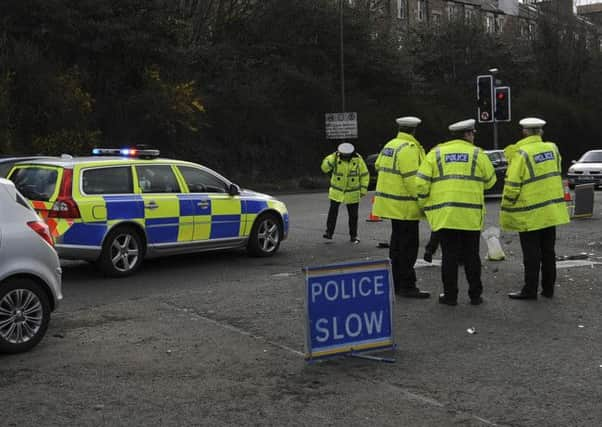Insurance fraudsters may lower premiums for us all


NOT SO long ago, insurance fraud was something people didn’t think too much about. While there have always been fraudsters who look for any means to make money, the insurance industry was never seen as an easy target.
Times have changed. According to the UK’s Association of British Insurers, undetected fraudulent general insurance claims cost £2.1 billion a year – adding an average £50 to individual insurance premiums. Insurance fraud affects nearly everyone in the UK. Out of 26.4 million households in Britain, around 90 per cent have at least one insurance product.
Advertisement
Hide AdAdvertisement
Hide AdPerhaps the biggest increase in fraudulent claims has been in motor insurance. The Insurance Fraud Bureau has estimated the cost of fraudulent, organised motor insurance claims to be as high as £392 million each year. As many as one in seven personal injury claims is connected to a suspected “Crash for Cash” or “Flash for Cash” scam.
BLM represents a broad spectrum of insurers and our major insurer clients report year-on-year increases in fraudulent motor insurance claims. Earlier this year, one of our clients, Aviva, revealed a 19 per cent increase in fraudulent claims between 2012 and 2013.
It’s not always easy to spot a false claim. Insurers have to differentiate between honest third parties and policyholders and those looking to make quick cash. Swindlers have been known to carry out emergency stops on motorways or flash motorists out of junctions, all with the sole intention of causing a collision.
The Association of British Insurers show the value of fraudulent insurance claims uncovered by insurers rose to a record £1.3bn in 2013, up 18 per cent on the previous year.
The number of dishonest motor insurance claims has increased by 34 per cent since 2012, costing £811m. This has led to a huge rise in the number of false injury claims.
Policyholders bear the brunt of this rise in fraud. Research has suggested motor injury claims for whiplash cost more than £2bn a year. For the average motorist, that equates to £90 being added to their annual premium to compensate for those whiplash claims.
Despite statistics showing Britain’s roads are becoming safer, the number of claims involving whiplash are steadily rising. Between 2012 and 2013 nearly 477,000 claims were made for whiplash alone – almost one claim every minute.
Do the figures reflect an increase in awareness? A quick look at the Continent reveals whiplash is a strangely British affliction. In the UK, 78 per cent of all low value motor injury claims are made for whiplash, compared to 48 per cent for the rest of Europe. Break it down further and Britain becomes more of an anomaly. For example, in France only three per cent of all personal injury claims involve whiplash.
Advertisement
Hide AdAdvertisement
Hide AdWhiplash diagnosis in France requires “objective proof based on more rigorous medical testing” and far fewer claims are made. For the French motorist, the upshot is cheaper insurance with rates generally 40 per cent lower than in Britain.
Insurance companies, particularly Aviva, are increasingly adopting a tough stance against fraudulent motor injury claims. Recently, BLM won a landmark Low Speed Impact motor injury claim on behalf of Aviva at the Court of Session.
The pursuer claimed to have sustained a whiplash injury which took 15 months to resolve and sought £30,000 in damages. Yet the insured vehicle – which ran into the back of the stationary car the pursuer was travelling in – was not damaged in any way.
Moreover, the pursuer’s vehicle only sustained rear bumper scratches. After in-depth investigations, BLM successfully argued the claim was grossly exaggerated and the pursuer was awarded just £850.
More importantly, BLM argued that expenses should be restricted to the sheriff court Summary Cause scale instead of the Court of Session. The judge even refused the pursuer sanction to recover his own counsel’s costs. Overall, there was a saving of £100,000 on the reserve.
The win marks a line in the sand for insurers. Pursuers’ solicitors will now have to think very carefully before proceeding with claims they have reason to doubt. Litigating low value claims in the Court of Session also poses a greater risk if there is no guarantee of recovering the significant costs involved. This case highlighted one of the recommendations in Lord Gill’s Review of Civil Litigation in Scotland. He recommended an increase in the privative jurisdiction of the Court of Session to £150,000. If implemented, cases such as this one would require to be raised in the sheriff courts, resulting in substantial savings in costs for insurers.
For motorists it could ultimately lead to cheaper car insurance, due to a reduction in exaggerated/fraudulent claims. In an industry plagued with bogus allegations, insurance firms are defiantly fighting back.
• Kelly Brotherhood is a solicitor with BLM Scotland www.blmlaw.com
SEE ALSO